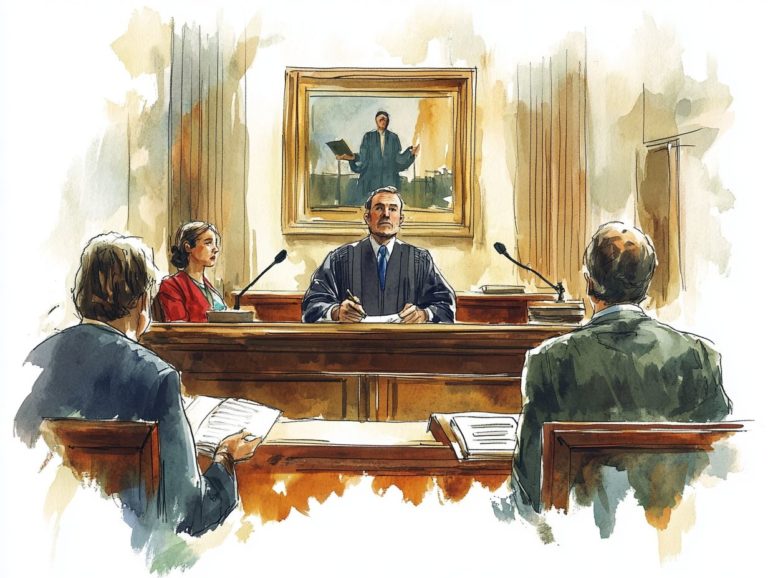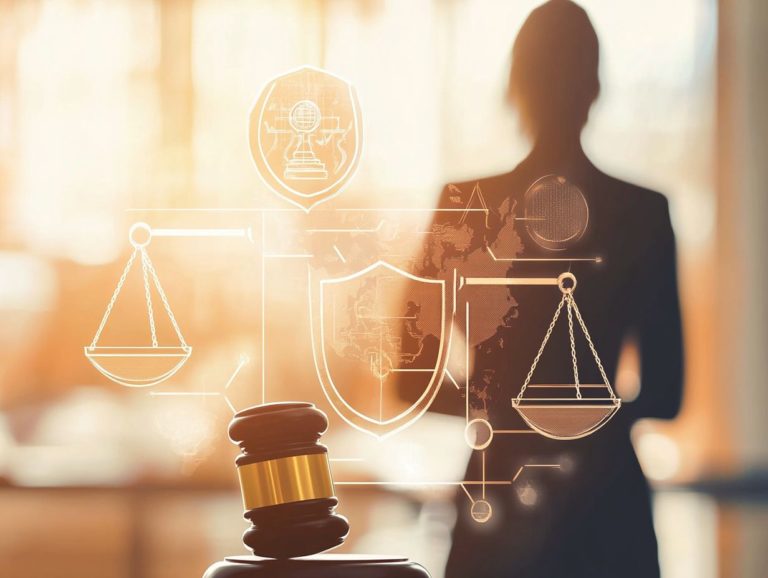Your Rights in Fraud Cases
Fraud impacts millions annually, leaving victims to face significant financial and emotional distress.
This article provides you with a thorough understanding of fraud. It guides you through its various forms and helps you recognize your rights as a victim.
You will discover essential steps to take if you suspect fraud, including effective methods for reporting and documenting evidence.
The exploration will also cover strategies for recovering both financially and emotionally, along with practical tips to help you prevent future incidents.
Arm yourself with the knowledge needed to navigate this complex landscape with confidence.
Contents
- Key Takeaways:
- Understanding Fraud
- Your Rights as a Victim of Fraud
- Steps to Take if You Suspect Fraud
- Recovering from Fraud
- Preventing Fraud in the Future
- Frequently Asked Questions
- What are my rights in fraud cases?
- Do I have to talk to the police if I am being investigated for fraud?
- Can I be arrested without evidence in a fraud case?
- Can I be charged with fraud if I did not intentionally commit fraud?
- What happens if I plead guilty in a fraud case?
- What should I do if I believe I am a victim of fraud?
Key Takeaways:
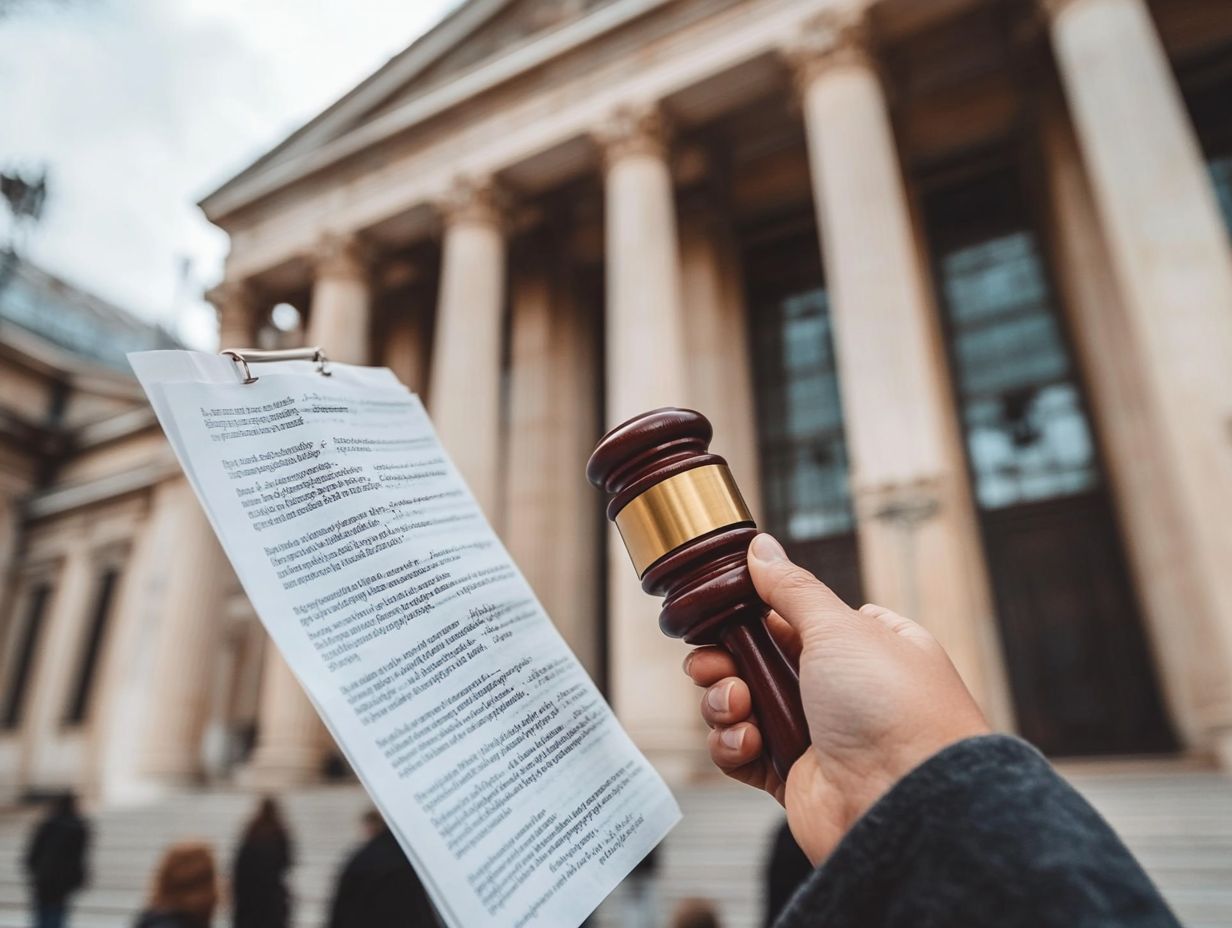
- Know the different types of fraud to understand your rights.
- As a fraud victim, you have legal protections to help you recover.
- If you suspect fraud, report it and document any evidence.
Understanding Fraud
Understanding fraud is essential in today s financial landscape. Many types of scams pose risks to consumer trust and economic stability.
Fraud includes various unlawful activities aimed at securing financial gain. These activities often involve misleading actions, such as non-violent crimes committed for financial gain.
In both the United States and the United Kingdom, robust legal frameworks have been established to protect consumers from these fraudulent activities. This highlights the vital importance of consumer protection and the trustworthiness of institutions.
Definition and Types of Fraud
Fraud can be understood as a deliberate act of deception crafted for personal gain. It takes on various forms such as credit card fraud, bank fraud, and identity theft.
Credit card fraud often involves the illicit acquisition of card information via techniques like phishing or skimming. Here, personal data is captured without the victim s awareness.
Bank fraud can manifest in a range of activities, from unauthorized withdrawals to more elaborate schemes that utilize false documentation to mislead banking institutions.
Identity theft revolves around the unlawful acquisition of someone s personal information. This enables criminals to commit a variety of offenses, like applying for loans or making purchases under someone else’s name.
These fraudulent actions not only compromise consumer protection efforts but also lead to serious legal repercussions. Violators can face substantial fines and the possibility of imprisonment.
Your Rights as a Victim of Fraud
As someone who has experienced fraud, understanding your rights is crucial. This knowledge is necessary for accessing the legal avenues needed to address the situation effectively.
Various laws, such as the Fair Credit Billing Act and the False Claims Act, offer essential protections against deceptive practices in financial transactions.
Many federal and state agencies, such as the Federal Trade Commission (FTC), help tackle these issues. They provide valuable resources to help you navigate these challenging circumstances with confidence.
Legal Protections and Resources
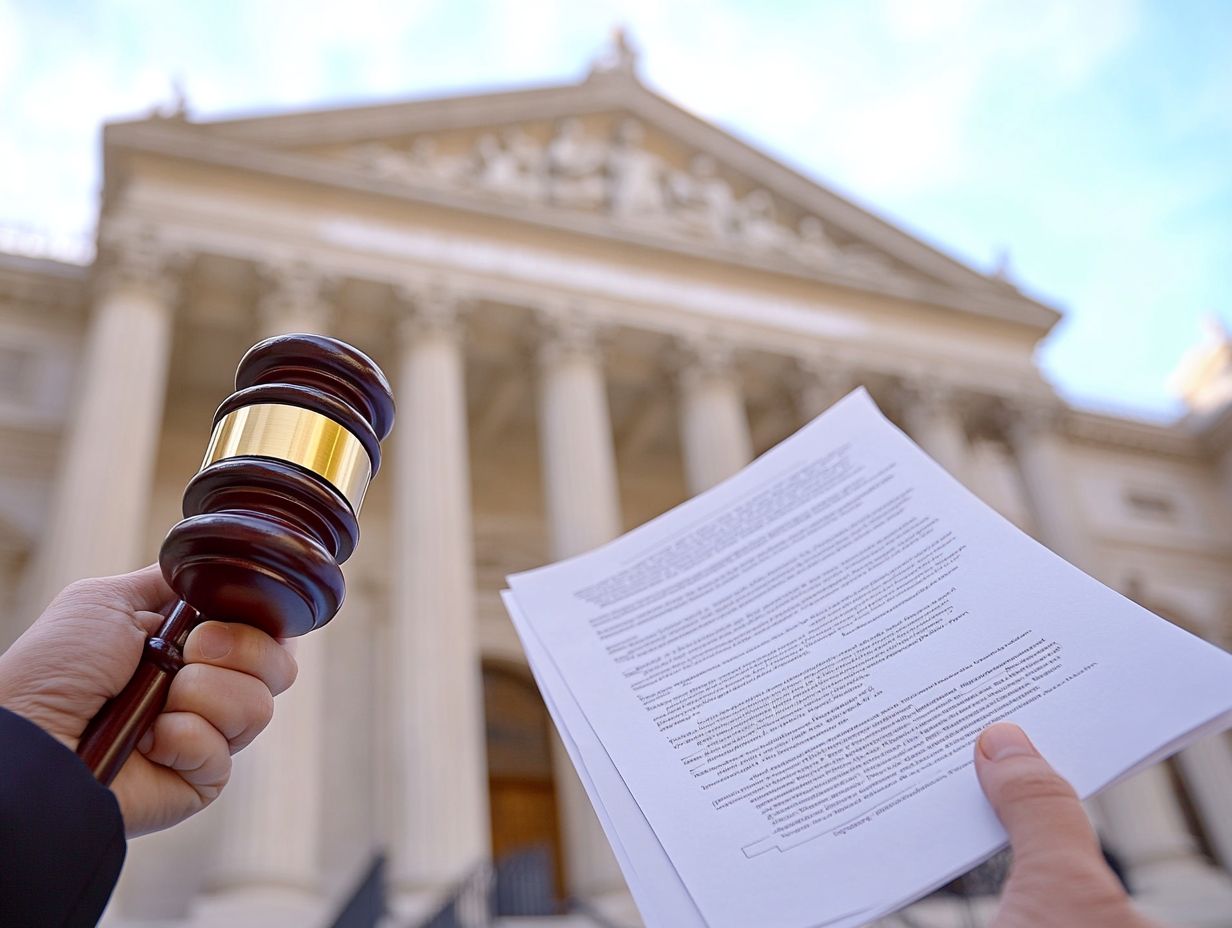
Legal protections against fraud include various mechanisms designed to safeguard you as a consumer. These encompass laws specifically created to combat insurance fraud and other financial deceptions.
Numerous federal and state agencies, like the FTC and local consumer protection offices, play a vital role in addressing these issues. They assist you in filing complaints and offer invaluable resources to help you understand your rights and the legal processes involved.
Imagine being misled into buying a fake insurance policy. This can happen to anyone, but there s hope! Thanks to the FTC, victims can secure restitution and help bring scammers to justice.
These agencies actively investigate fraudulent activities, impose penalties on wrongdoers, and aid victims in reclaiming their losses. This reinforces the idea that avenues exist for seeking justice and restoring your trust.
Steps to Take if You Suspect Fraud
If you suspect fraud, you must act quickly to protect yourself and secure potential legal recourse. Start by reporting the incident and documenting any evidence you can gather.
Key steps to take include:
- Reaching out to your credit card issuer or financial institution.
- Filing a report with the appropriate authorities.
- Keeping meticulous records of all communications and transactions linked to the fraudulent activity.
Your proactive approach can make all the difference in navigating this challenging situation.
Reporting and Documenting Evidence
Reporting and documenting evidence of fraudulent activities is crucial in pursuing legal recourse and protecting yourself against further deception.
If you suspect that you’ve fallen victim to fraud, connect with the appropriate authorities, such as the Federal Trade Commission (FTC) and your local consumer protection agency. These organizations can guide you on how to formally report the fraudulent behavior.
Gather as much evidence as possible, including any suspicious transactions, correspondence, and personal accounts detailing your experiences.
Financial markets play a vital role in detecting and combating fraud by enforcing stricter regulations and compliance measures. This creates a safer environment for consumers like you, who rely on these markets for reliable and trustworthy transactions.
Recovering from Fraud
Recovering from fraud encompasses both financial and emotional dimensions. As a victim, you navigate the journey to regain your financial stability while grappling with the psychological aftermath of identity theft or insurance fraud.
Recovering from fraud is challenging. It’s important to focus on both your finances and your emotional health.
Financial and Emotional Recovery
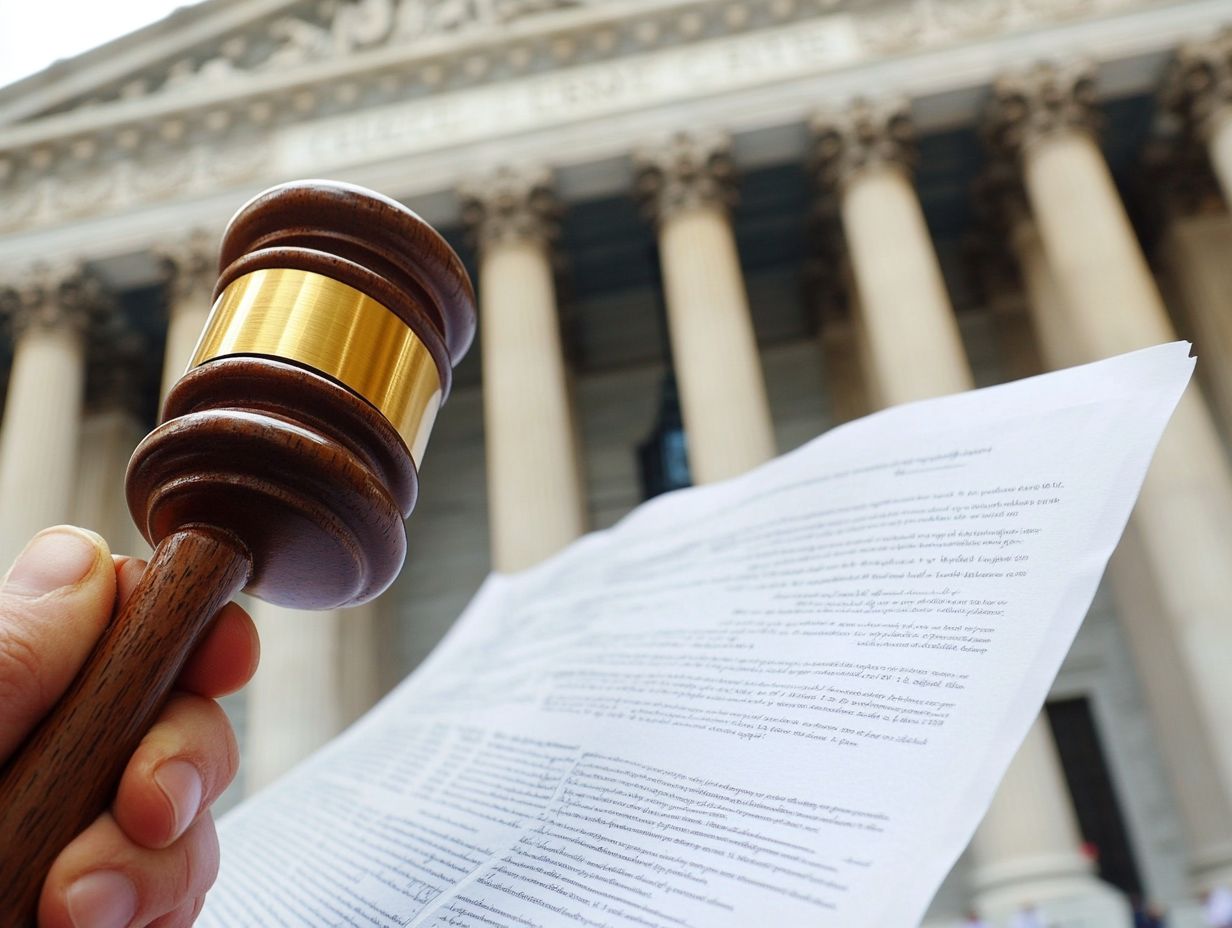
The journey of financial and emotional recovery from fraud can feel overwhelming, especially for those who have fallen victim to identity theft, facing long-term ramifications and legal hurdles.
To navigate this challenging process, adopt a proactive mindset aimed at restoring not just your financial stability but also your emotional resilience. Begin by gathering all relevant documentation related to the theft and promptly contacting your financial institutions to report the fraud. This will help you establish a robust plan for monitoring and rebuilding your credit.
Access mental health resources, such as counseling or support groups, to offer invaluable emotional support during this tumultuous period. Don’t hesitate to lean on your support network they’re there to uplift you!
Seek professional guidance from financial advisors to help you craft a comprehensive recovery strategy, setting the stage for a more secure future.
Preventing Fraud in the Future
Preventing fraud requires a proactive approach and keen awareness of the deceptive practices that can lead to identity theft and financial loss.
Use strategies to protect yourself. This will lower your risk of fraud.
Tips for Protecting Yourself and Your Information
Implementing effective fraud prevention strategies is crucial for safeguarding yourself and your information in today s digital landscape. As more transactions and interactions move online, the risks of data breaches and identity theft are increasing.
A recent study found that 1 in 4 consumers has been a victim of some form of cybercrime, underscoring the need for you to adopt robust security practices.
To enhance your protection, start by using strong passwords that blend letters, numbers, and special characters. Enabling multi-factor authentication a security method that requires more than one form of verification adds an extra layer of security.
Be vigilant about the personal information you share online; even seemingly harmless details can be exploited by fraudsters. Experts suggest regularly updating your security settings and monitoring your financial accounts to catch any suspicious activity before it spirals out of control.
Frequently Asked Questions
If you have questions or want to share your experiences related to fraud, feel free to reach out! Your insights can help others navigate these challenges.
What are my rights in fraud cases?

You have important rights in fraud cases. These include the right to remain silent, the right to an attorney, the right to a fair trial, and the presumption of innocence.
Do I have to talk to the police if I am being investigated for fraud?
No, you can stay silent. It’s best to talk only with your attorney before saying anything to the police.
Can I be arrested without evidence in a fraud case?
Yes, if there is good reason to believe you’ve committed fraud, you can be arrested. You can challenge the evidence and defend yourself in court.
Can I be charged with fraud if I did not intentionally commit fraud?
No, fraud involves the intention to deceive for financial gain. Without that intent, you may have a valid defense.
What happens if I plead guilty in a fraud case?
Pleading guilty means you admit to the charges and give up your right to a trial. Understand the serious consequences and consult an attorney before making this choice.
What should I do if I believe I am a victim of fraud?
If you think you ve been a victim of fraud, report it to the authorities immediately. Acting quickly is crucial, and consulting an attorney can help you explore your options for recovering losses.


